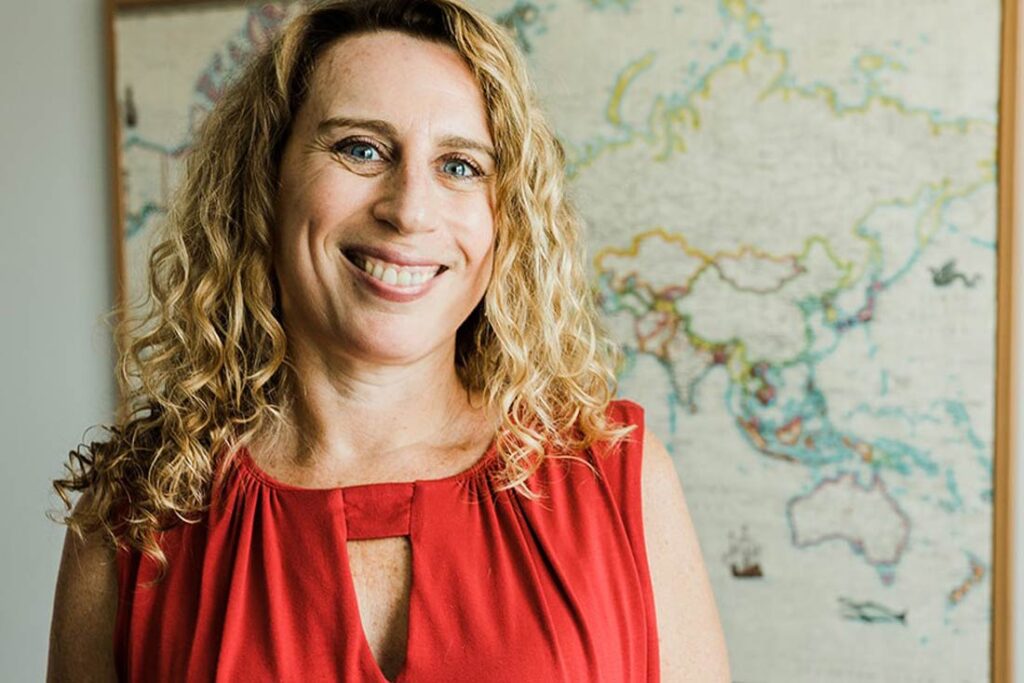French social change-maker Charlotte Cotton celebrated International Women’s Day 2023 at the Alliance Française de Pondichéry in India. Her social organization Propolis’s “No More Taboo” program worked with 143 youth on using storytelling to empower themselves to respectfully discuss taboo topics such as gender equality, reproductive rights and violence against women. It was just one stop on the 70-day, 12-city tour.
Propolis, which was founded in October 2022, traveled throughout India for three months training 1,000 social workers, teachers, health and corporate professionals and youth on emotional processing and communication skills to combat stigmas around other taboo topics like sexuality, incest, illness, mental health and death.
The tour was made possible by individual donors and an empowering $500 USD grant by Massachushetts-based nonprofit Giving Joy.
“One of the biggest challenges for any kind of social organization, when you start and when you’re really small, is where do I even start? If I’m not registered, if I don’t have a name, if I didn’t pilot or test my own organization, who is going to give me money?” Cotton says.
Giving Joy is making macro impacts through micro grants
Giving Joy is an international micro grant and mentorship initiative funding women-led businesses and organizations making a social impact. It is founded by international development manager Joy Kolin. Through micro grants, Giving Joy is making macro impacts.
“You don’t have to be Melinda Gates to do good and impact people; with a little money, you can do quite a lot,” Kolin says.
Through her work, Kolin has worked on multimillion-dollar funded projects in Africa, Asia and the Middle East. She knew she was doing good, yet she didn’t feel the impact.
“I wanted to do something that was really on a one-to-one level so that I would be able to feel the impact that I’m doing,” she recalls.
Empowering women to bring their ideas to life
Kolin founded Giving Joy with money from her own pocket in 2018. She uncovered a need for capital through conversations with women from around the world and wanted to empower them with a financial stepping stone to bring their ideas to life.
“The money really helped to put things into action,” Cotton says. “When you’re an entrepreneur, you can have millions of ideas, but if you don’t have any funds, then nothing is really going to happen.”
Over the last five years, Giving Joy has awarded 73 one-time micro grants ranging from $250 to $500 to women in 21 countries. The investment has provoked change in communities across the globe.
In Pakistan, Giving Joy funded Food Security and Agriculture Center of Excellence trainer Ummara Tariq’s three-week training on value-add dairy products. The training taught women how to turn raw milk into butter, yogurt and cheese to sell at the market, raising their estimated monthly income from $15 to $54.
“A little does go a long way, if you know where to direct it,” Kolin says.
How to apply to a Giving Joy micro grant
Giving Joy’s grant application is straightforward. The board wants to know who you are, what you do and the impact your business or organization aspires to accomplish.
“The most important factor is really the impact that the grant will have,” Kolin says. “How much impact can we get for each dollar?”
Giving Joy shortlists applications that exhibit a “multiplier effect,” where dollars go beyond the grant recipient and have a positive effect on women and the community. In 2023, Giving Joy received 4,119 applications from 70 countries. The nonprofit awarded 13 grants that impacted an estimated 380 direct beneficiaries and 60,000 indirect beneficiaries.
Call for applications for the current grant cycle is open until April 30, 2024. If you would like to be considered for a Giving Joy grant this year, click here to apply.
Photo by Rob Colameta.




